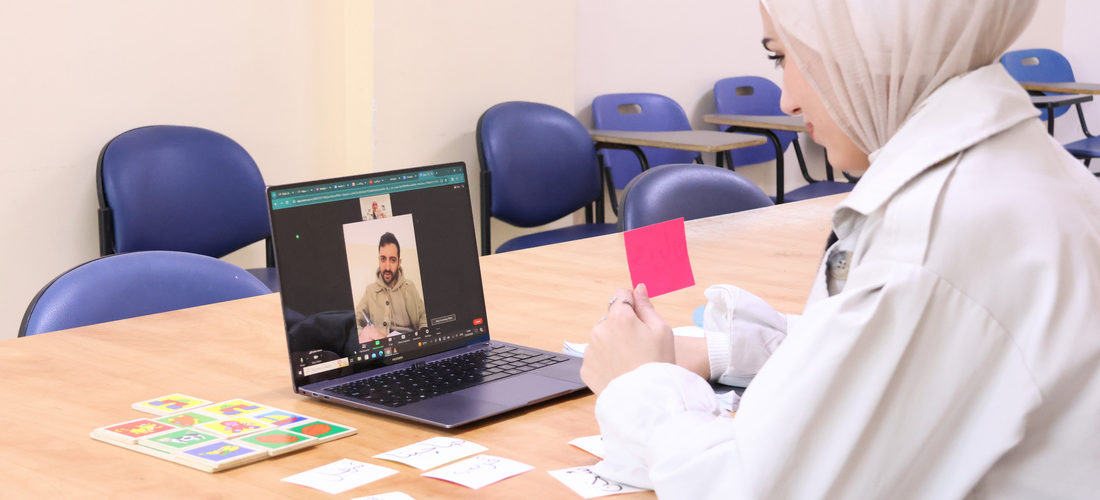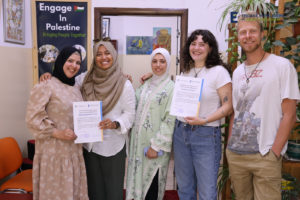Study Arabic Online Program: Besides our in-person programs held at the center, Engage in the West Bank also offers online Arabic language classes in Modern Standard, Levantine (Shami), and Palestinian Arabic (Ammiya). Depending upon your intended study purpose, each online Arabic program has its advantages, as colloquial variants are better suited for those simply traveling and conversing, whilst Modern Standard is ideal for those needing Arabic professionally.
However, you can tailor your program to suit your specific needs and interests. Are you someone who wants to travel throughout the Levant on your own time but also needs to analyze historical texts for your profession? Then, you could merge Modern Standard and Levantine Arabic, as we can more than accommodate your preferences.
Our online Arabic programs cover all aspects of language learning. They focus on phonetics, conversation, writing, reading, and listening comprehension, learning common idioms, completing daily tasks, and discussing various subjects suited for your course level. This ensures you have a wide range of knowledge of Arabic.
Engage in the West Bank offers six different levels of Arabic instruction: beginner, elementary levels 1 and 2, intermediate levels 1 and 2, and advanced. Additionally, each course level is offered at three intensities: non-intensive, intensive, and super-intensive, the difference being the course load and frequency of sessions. As our online courses are available any day of the week and offered year-round with no official application deadline, when you start your Arabic journey is completely up to you!
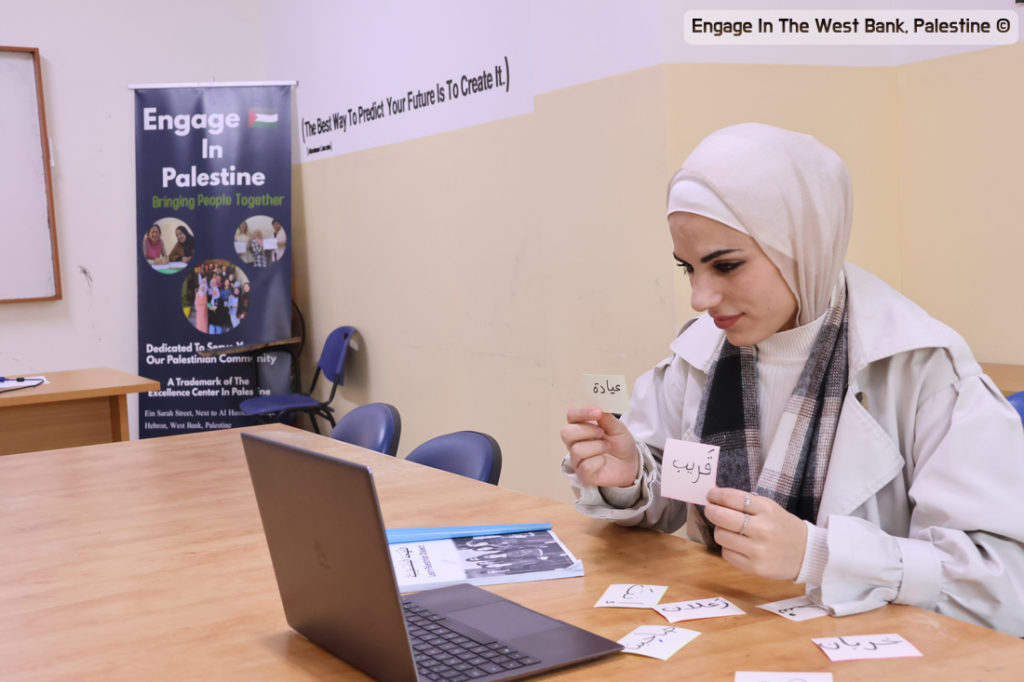
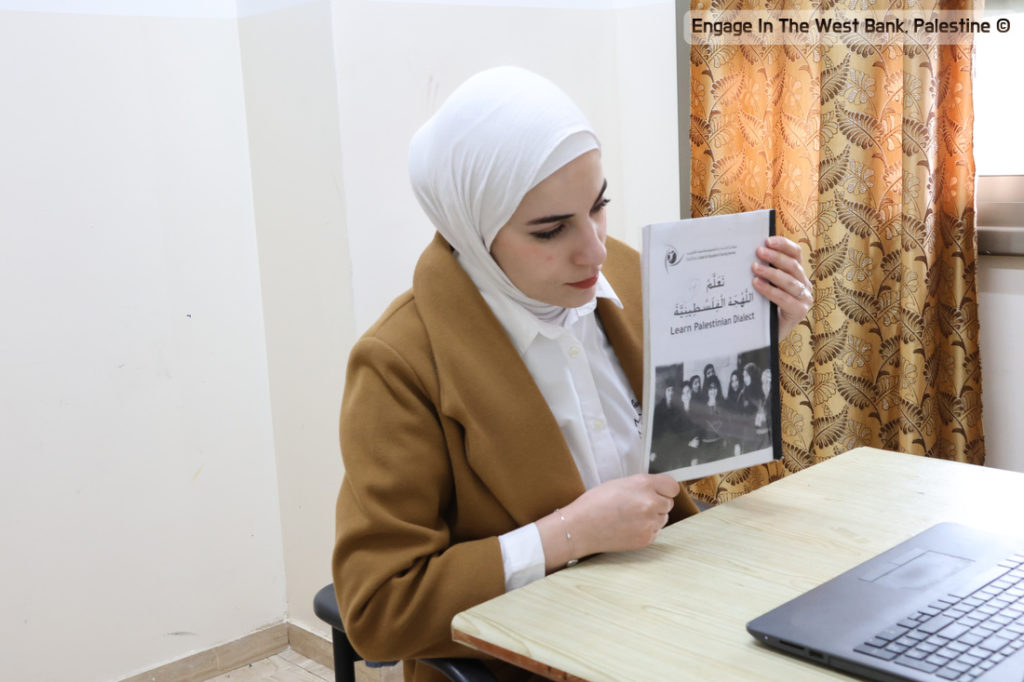
Online Arabic Lessons for 2025/2026
We have started accepting registrations for Online Arabic Lessons for the 2025/2026 academic year. These include courses in Levantine Arabic, Palestinian Arabic, Modern Standard Arabic, and online Arabic for Kids programs. Secure your spot and begin your Arabic language journey with us!
Table of Contents
Online Arabic Courses for Children
In addition to the adult courses, Engage in the West Bank also offers Arabic tuition for children, which is a great opportunity to begin acclimating your child to the Arabic language and culture in a formal and accessible setting. Differing from our adult programs through the content and methodology in which they are taught in order to keep their interest, we incorporate more dynamic, immersive methods such as image recognition, flashcards, games, and songs.
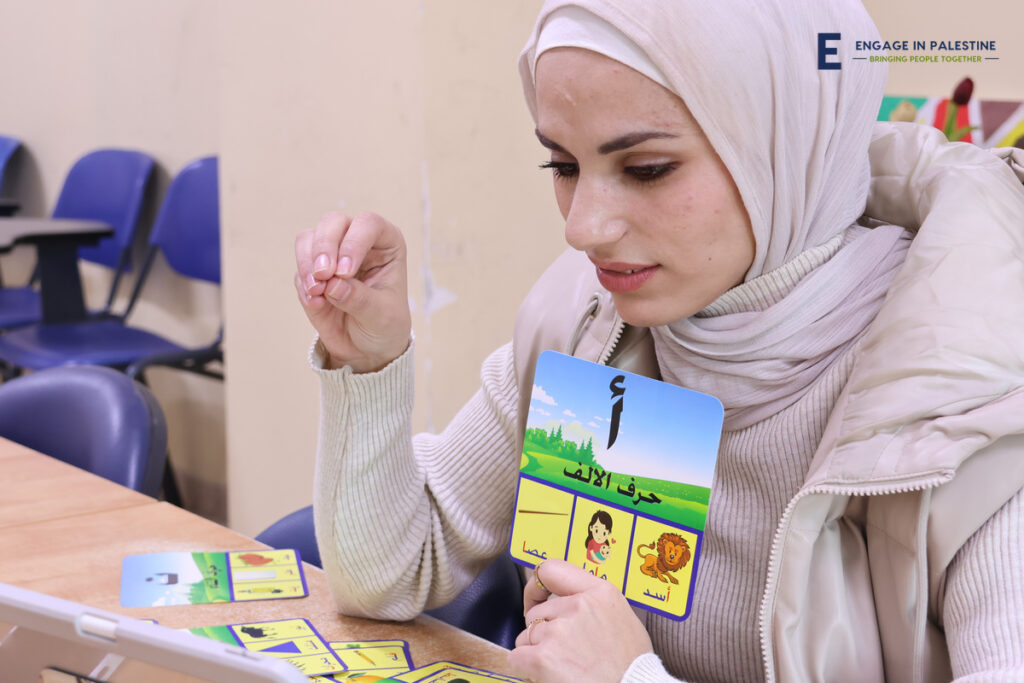
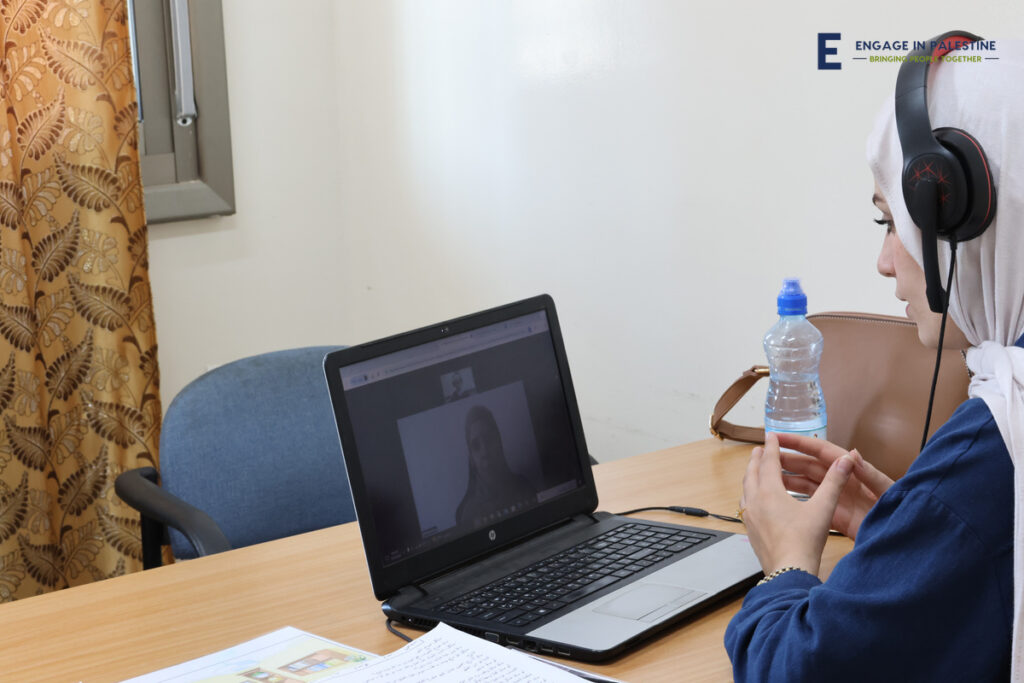
Our online Arabic courses are an excellent way to introduce children to an authentic Arabic experience from the comfort of home. Specially designed for children in a virtual format, the course includes all picture books, articles on various subjects and digital media. So if you are looking to introduce your child to the Arabic-speaking world, enroll them in our Study Arabic Online Program to begin their language journey!
Arabic Varieties on Offer
As aforementioned, Engage in the West Bank offers a wide range of Arabic studies, including Modern Standard (MSA) and colloquial variants (Ammiya), such as Palestinian and Levantine dialects (Shami Arabic). You may also choose to learn a blend of Arabic varieties, such as combining MSA and Palestinian Arabic for your program.
Due to Arabic being an incredibly diverse language with numerous dialects and subdialects, before choosing your desired variety of Arabic, we recommend that you consider how you intend to use the language and for what future purposes you might need it. For example, those who wish to use Arabic in professional settings will probably find the formal Modern Standard Arabic most beneficial, but those wishing to use Arabic to converse in everyday settings and travel throughout the region should focus on learning the spoken Palestinian or Levantine dialect.
For those who are unsure which style of Arabic is most suitable, feel free to contact us at Engage in the West Bank. We are more than happy to assist you in finding the right course.
Online Arabic Varieties on Offer:
- Modern Standard Arabic (MSA)
- Colloquial Levantine Arabic (Shami)
- Colloquial Palestinian Arabic (Ammiya)
- Combination of two varieties
Modern Standard Arabic
In recent years, Arabic, Russian, French, Spanish, Chinese, and English have become global languages. With 275 million speakers worldwide, Modern Standard Arabic is the sixth most widely spoken language.
First developed in the 19th and 20th centuries as a way for Arabic publications to reach a wider audience without navigating the complexities of various dialects, MSA has quickly become the contemporary standard for literary, legal, academic, and international purposes. It’s also recognized as an official language in 25 countries, including every member of the Arab League.
While the people within every one of these member states speak their unique, colloquial dialect, Modern Standard Arabic is the multinational unifier between these Arabic speakers of different colloquialisms who would otherwise find themselves unable to communicate. MSA is, therefore, one of the surest ways to communicate with Arabic speakers across the Middle East and North Africa, as well as the wider Arab diaspora.
Classical or Modern Standard?
The terms Modern Standard and Classical Arabic are sometimes used interchangeably, so it’s important to settle any confusion. Classical Arabic—also called Quranic Arabic—is the style of Arabic dating back to the 7th century, when Islam was founded.
Modern Standard Arabic, however, although based on this classical style, has some minute differences, such as the stylization and method of diction. In contemporary language, many consider classical and modern standard Arabic synonymous, and even the Arabic word Fus’ha does not differentiate between the two. Therefore, those who enroll in the MSA Program will be well-equipped to understand more literary forms of Arabic, including the Quran.
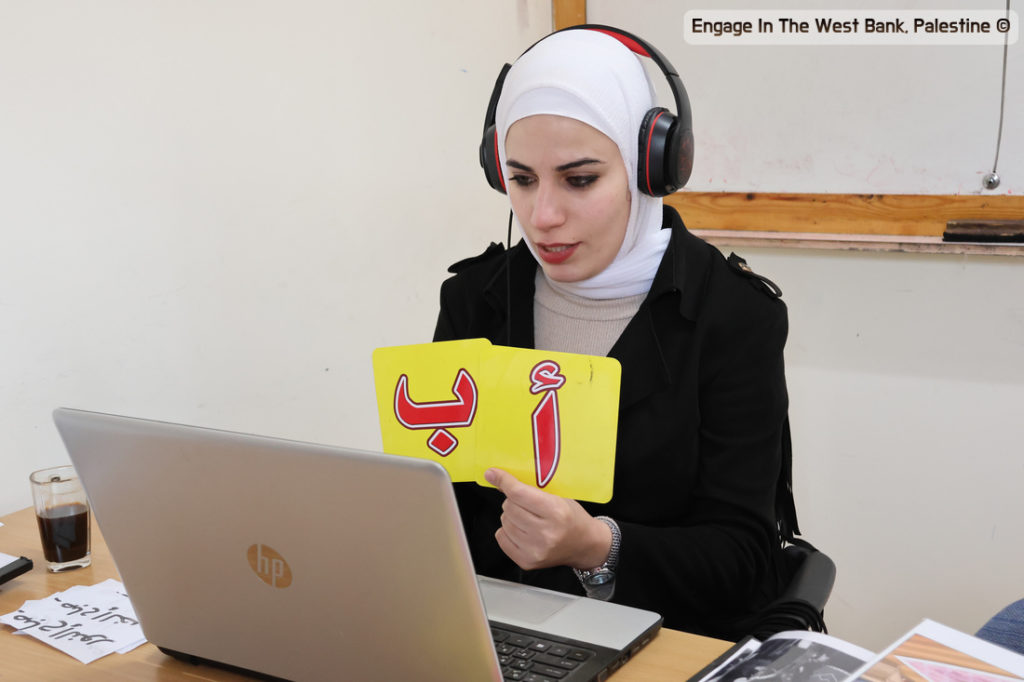
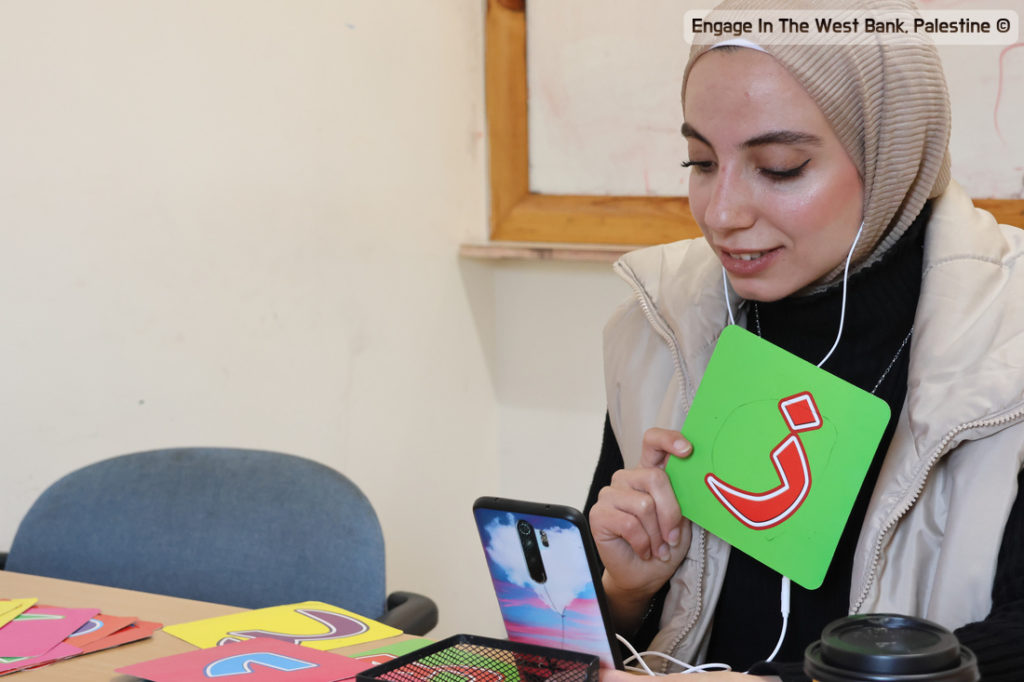
Why Study Modern Standard Arabic?
Modern Standard Arabic is ideal for those who wish to establish a strong foothold in the Arabic language as a whole and plan to expand into colloquial variants in the future. The language itself is widespread, as it’s the primary form of Arabic taught in schools across the Middle East and North Africa (MENA). Therefore, Arabic speakers across the region can use it as a resource to communicate with those of different Arabic colloquialisms. Furthermore, MSA students can likewise use it to communicate while traveling throughout the MENA region.
Therefore, MSA’s wide geographical range makes it an excellent choice for those wishing to venture into the Arabic language. MSA is also incredibly important in areas related to literature, news media, academia, diplomacy, law, international business, and more. Subsequently, studying MSA gives you improved access to the literary world of Arabic and opens doors for professional advancement. The best part is that you can study Arabic online from home. How cool is that?
Levantine Arabic
Levantine Arabic (also commonly referred to as Shami since the Arabic word for the Levant is Sham) is one of the two dominant dialects of Arabic in the world, the other being Egyptian. With an estimated total of roughly 38 million native speakers throughout the Levant and the Arab diaspora, Levantine Arabic is one of the most widely spoken dialects and is, therefore, commonly taught to non-native speakers. It is also generally understood in other Arabic-speaking countries due to its cultural reach.
In addition to the Palestinian dialect spoken, Levantine Arabic is also the closest dialect to MSA. Approximately 50% of its vocabulary corresponds directly to Standard Arabic, making it one of the most recognizable dialects in the Arab-speaking world.
What are Levantine Sub-Dialects?
The subdialects of Levantine Arabic are predominantly divided into two main subgroups: Northern and Southern Levantine.
Also known as Syro-Lebanese Arabic, North Levantine Arabic is spoken in the northern countries of the Levant, such as Lebanon, the regions of Syria bordering Aleppo, Damascus, and the Mediterranean, and territories such as Turkey’s coastal regions of Adana, Hatay, and Mersin.
On the other hand, Southern Levantine Arabic is the other sub-dialect, spoken in Palestine, across most of Jordan, and in Syria’s southern region, particularly the Hauran.
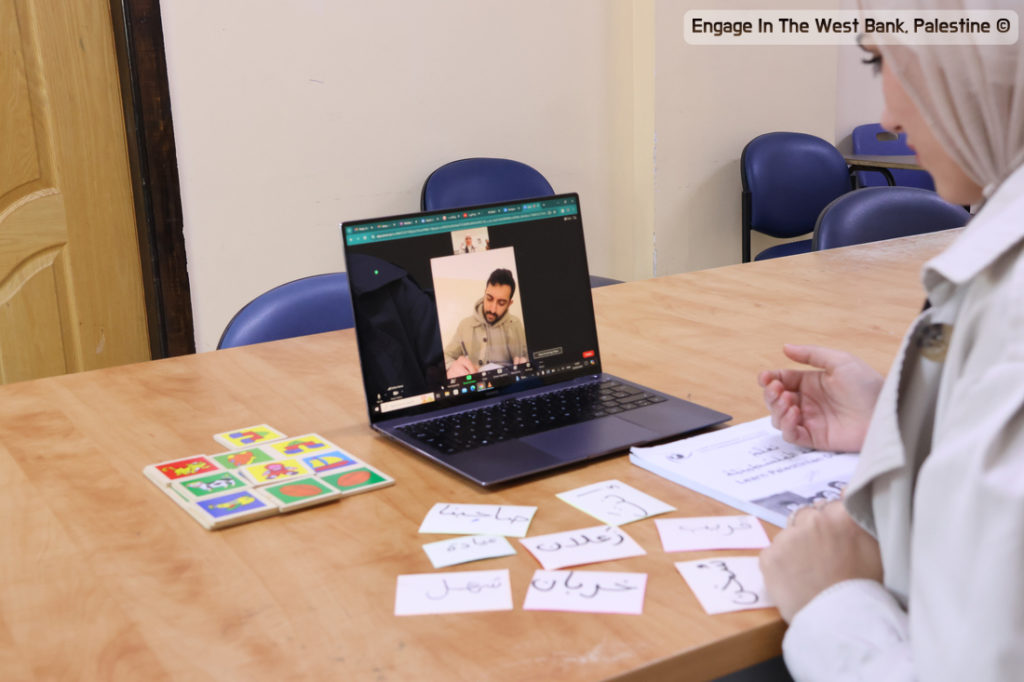
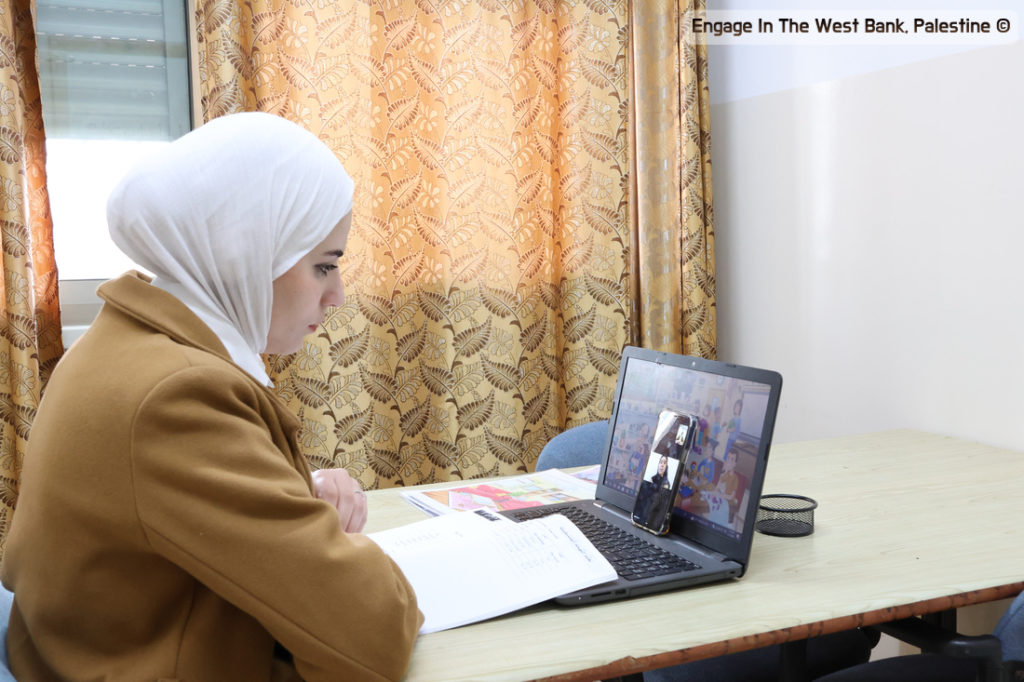
Why Learn Levantine Arabic?
The reasons for learning spoken Levantine Arabic are multifaceted and wide-ranging. As one of two dominant spoken dialects, you will have numerous opportunities to engage with the people, politics, histories, and cultures of the 38 million who understand this language.
Additionally, whether it be because of travel, recreation, business, personal interest, family lineage, or simply intrigue, if you study Levantine Arabic, you will be connected to one of the most diverse and influential regions of the world and have the opportunity to interact with new individuals and whole communities across Arabic-speaking countries and the Arab diaspora.
Palestinian Arabic
Palestinian Arabic is a colloquial Arabic dialect native to Palestine and the wider Palestinian diaspora. With approximately 13 million native Palestinian speakers worldwide, it is one of the most spoken and well-recognizable dialects of Arabic.
Palestinian Arabic is spoken and/or understood throughout the Levant as another subdialect of Levantine Arabic. With 44.5 million people and a rich diversity of cultures and ethnicities, the Levant includes countries such as Lebanon, Syria, Jordan, and Palestine, as well as Cyprus, Turkey, and Egypt, using broader definitions. However, Palestinian Arabic can vary even further despite already being a sub-dialect, as villages and rural Fellahi, Bedouin, and urban Madani tribes have their own language dialects.
Yet despite these many variants and subdialects within Levantine Arabic, spoken Palestinian Arabic still remains recognizable throughout Arabic-speaking countries, not to mention the Arab diaspora.
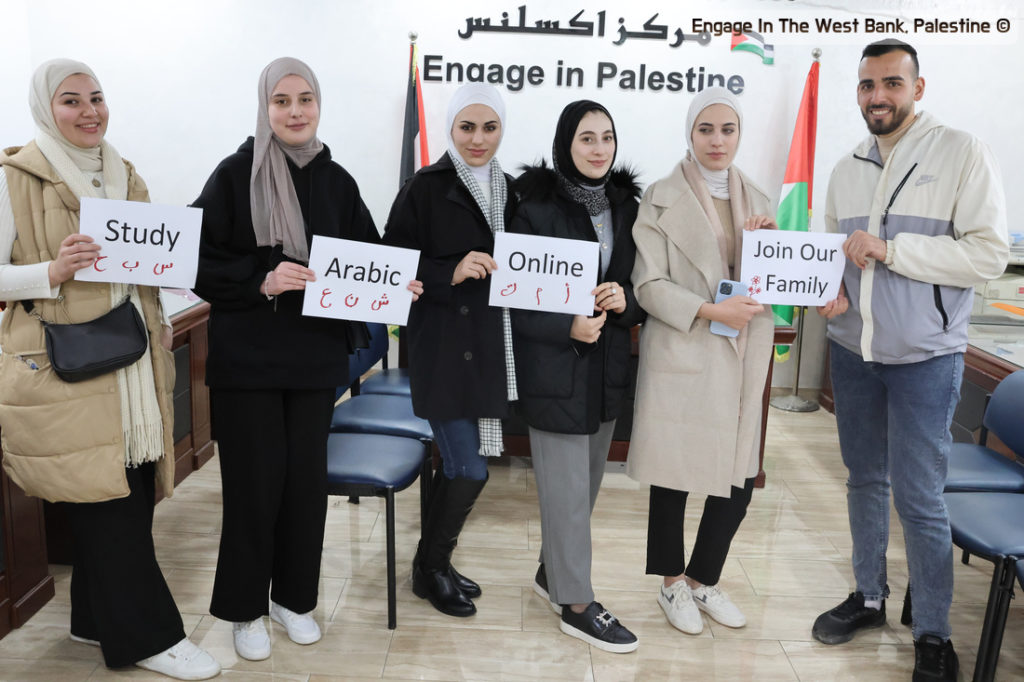
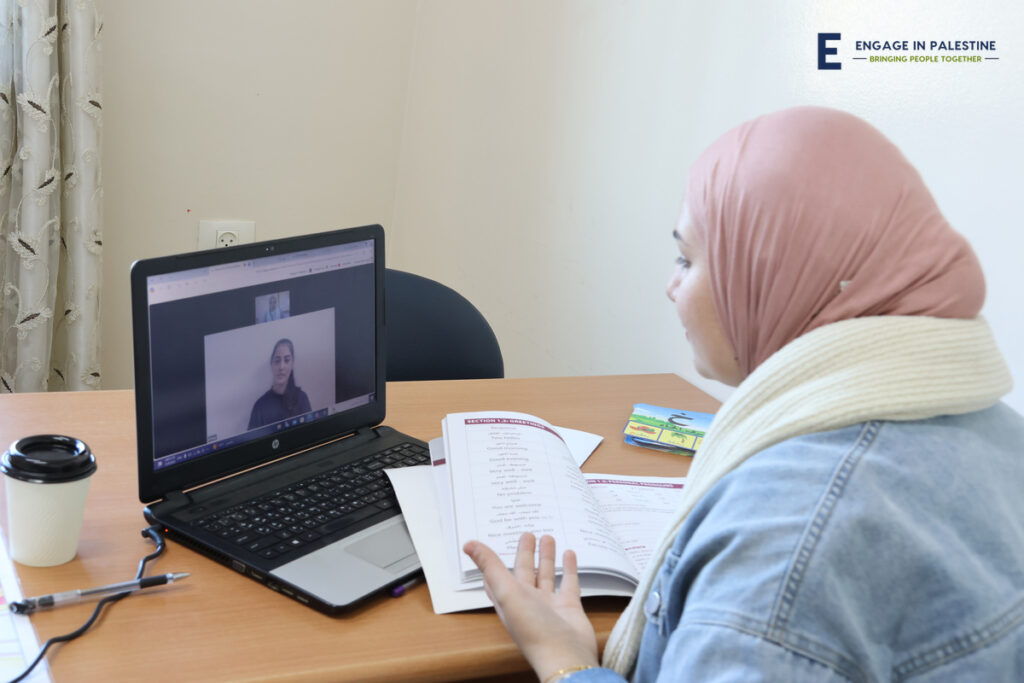
Why Learn Palestinian Arabic?
Palestine’s culture is among the richest and most diverse in the world due to its long history, geographical position, and religious significance. Having played host to at least five major empires, Palestine also lies at a crossroads between Europe, the Middle East, Africa, Asia, and the Mediterranean. Therefore, due to its significance in one of the most influential regions in the world, Palestinian Arabic is widely understood and spoken.
Palestinian Arabic also closely resembles Modern Standard Arabic, making this dialect ideal for those wishing to expand their literary scope to include Arabic texts or to use in professional environments. However, regardless of your reason, learning Palestinian Arabic is one of the best ways of gaining a foothold in the Arabic-speaking world.
Online Arabic Course Levels on Offer
No matter your experience level, Engage in the West Bank offers a variety of language levels in addition to our non-intensive, intensive, and super-intensive tracts.
Beginner
Designed for students with no previous Arabic language experience, this course will introduce you to basic concepts, including the Arabic alphabet, writing systems, grammar fundamentals, phonetics, and common vocabulary and phrases. The Beginner online Arabic course will create a strong linguistic foundation from which you will leap into the diversity and complexity of the Arabic language.
Elementary Level 1
This online Arabic course will continue where the Beginner left off, building on your foundational knowledge of Arabic. This entails the introduction of new vocabulary and slightly more complex grammatical rules, and regular reading, writing, and speaking exercises. Upon completing this course, you can converse, read, and write about elementary subjects such as shopping, asking for directions, and expressing preferences.
Elementary Level 2
This Online Arabic course will take the subjects addressed in the Elementary Level 1 course and build on the curricula by expanding and diversifying your vocabulary. into more intricate territory. However, whilst the topics are similar, the Level 2 course will focus predominantly on easing into more complex grammar.
Intermediate Level 1
This intermediate Online Arabic course will introduce you to a more immersive curriculum than the previous levels. It will entail venturing into Arabic culture through a virtual format, communicating with native Arabic speakers, and completing everyday tasks.
For example, students may be instructed to role-play scenarios such as navigating a Palestinian market, ordering from a restaurant, discussing preferences in art or film, or other colloquial and conversational activities. You will also be introduced to subjects in class that touch upon specific issues such as culture, art, and politics and learn the vocabulary needed to converse about these topics concisely and well-informedly.
Intermediate Level 2
This online Arabic course level is intended for those possessing an extensive Arabic vocabulary applicable to a wide range of topics and seeking further immersion in Arabic. Subsequently, this course level will focus mostly on comprehension in the context of listening, writing, reading, and speaking, entailing the practical application of Arabic within an online format. The majority of the class will be conducted solely in Arabic.
Advanced
This online Arabic course will combine all the previous courses’ curriculums, maintaining the immersive nature of the intermediate levels while also expanding into more complex reading, writing, and spoken materials. Additionally, you will begin conducting research in your chosen Arabic dialect while establishing firm competency.
With these methods and materials combined, you will be able to establish a firm understanding and grammatical competence of whichever variety of Arabic you have decided to pursue. Upon completing this course, you can articulate your thoughts and opinions on complex matters such as politics, history, the environment, the arts of Palestine, and the wider diaspora.
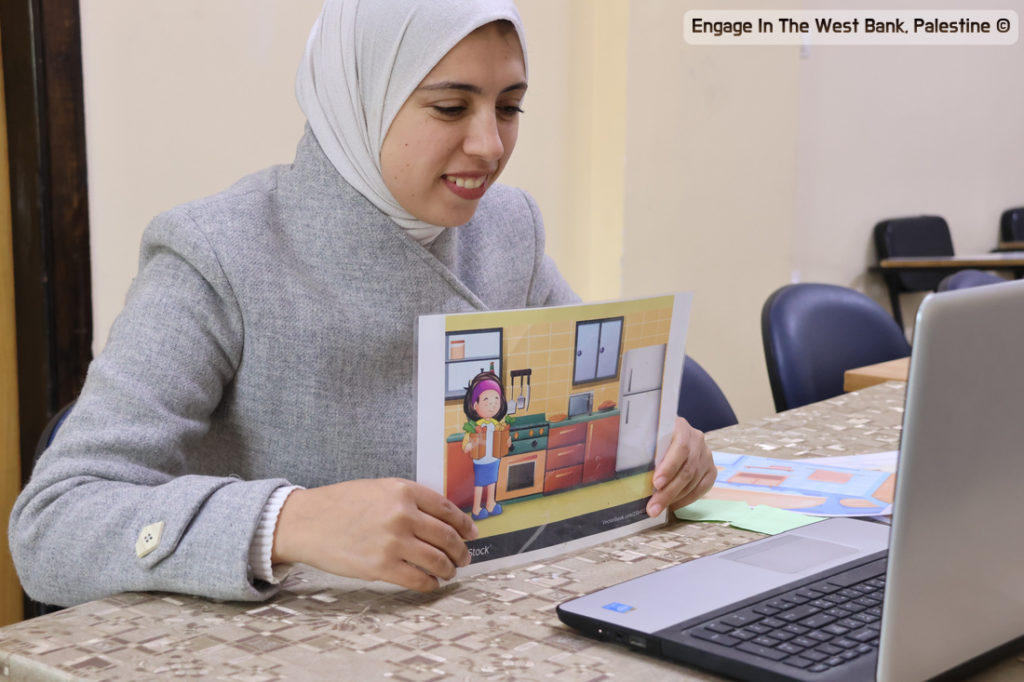
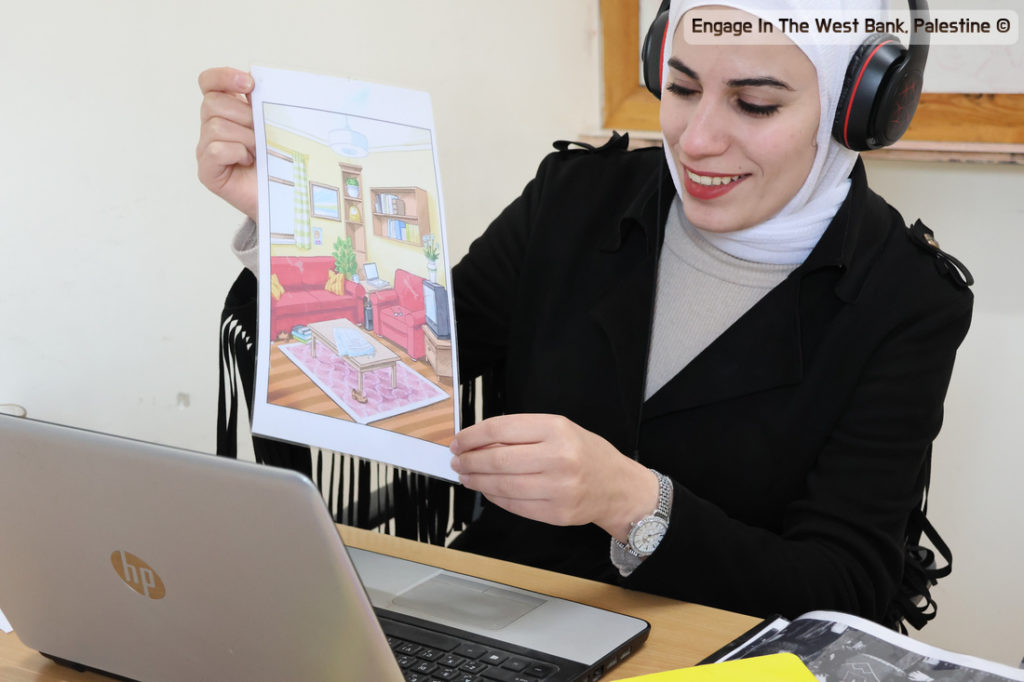
Online Arabic Course Intensities on Offer
Not to be mistaken with course level itself, Online Arabic course intensities regard the frequency at which classes are held, the level of immersion, and the amount of assigned homework.
Non-Intensive
We recommend that students interested in a more relaxed course load and longer program opt for the non-intensive Online Arabic courses. These courses are conducted in 1-2 weekly sessions, each lasting 1.5 hours. This intensity is ideal for those with busy schedules or who learn better at longer intervals.
Intensive
The intensive online Arabic course aims to further immerse you in the Arabic language and culture. It involves one session daily, five days a week. As each session is about 1.5 hours a week, this totals 7.5 hours of class time a week, not including the additional homework and out-of-classroom assignments expected.
Super-Intensive
Finally, our super-intensive online Arabic courses are for students who are looking for an accelerated Arabic program with an immersive format in a high-intensity classroom setting. These online super-intensive Arabic sessions occur twice daily, five days a week, and at 1.5 hours for each session; this equates to about 15 hours of class time per week. We recommend that those studying less than a month or who are specifically looking for an accelerated Arabic program opt for super-intensive courses.
Course Level | Beginner |
| Elementary | |
| Intermediate | |
| Advanced | |
Pace | Non-intensive |
| Intensive | |
| Super-intensive | |
| Style | Private in-person |
| Online virtual |
Program Costs and Information
Priced competitively with other Arabic courses, program costs for our online programs vary by the number of sessions. As no additional or hidden fees are applied to these programs, the cost quoted below is the complete and final cost you will pay.
Tuition is per session at:
- 185 Euro for 10 sessions
- 370 Euro for 20 sessions
- 550 Euro 30 sessions
- 900 Euro 50 sessions
Program Fees Cover:
- Language courses
- Online materials
- Teacher Salaries
- Operating costs
Online Courses for Your Convenience
Our online Arabic courses are available every day of the week to accommodate your schedule. In addition to choosing the most suitable intensity, you and your teacher will decide on the best meeting times according to your schedule and time zone. We are more than happy to work with you to arrange class times that suit you.
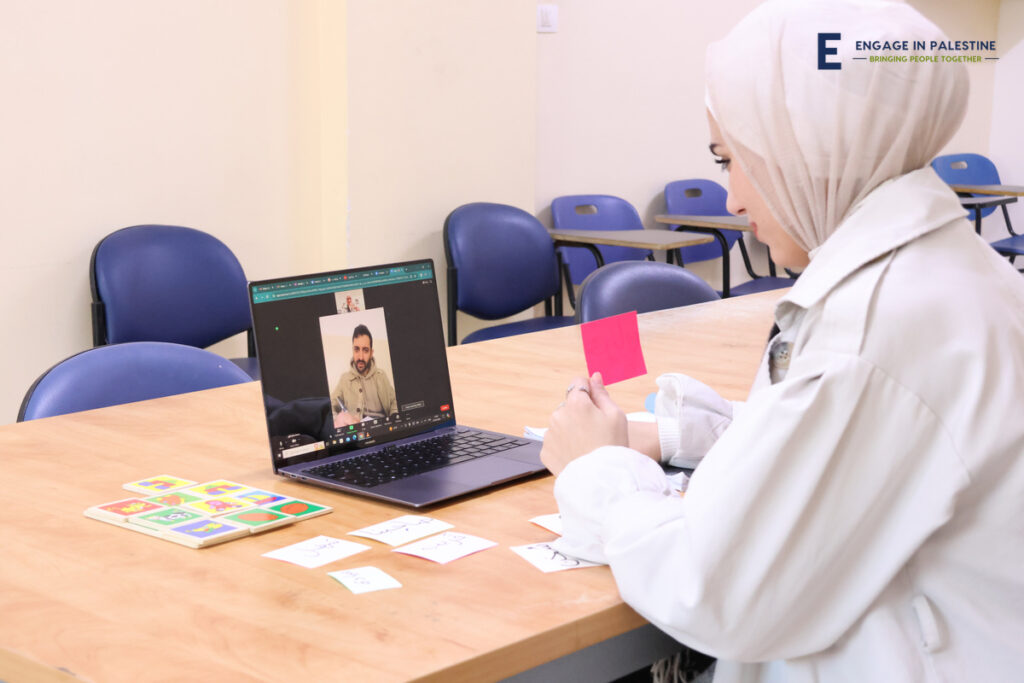
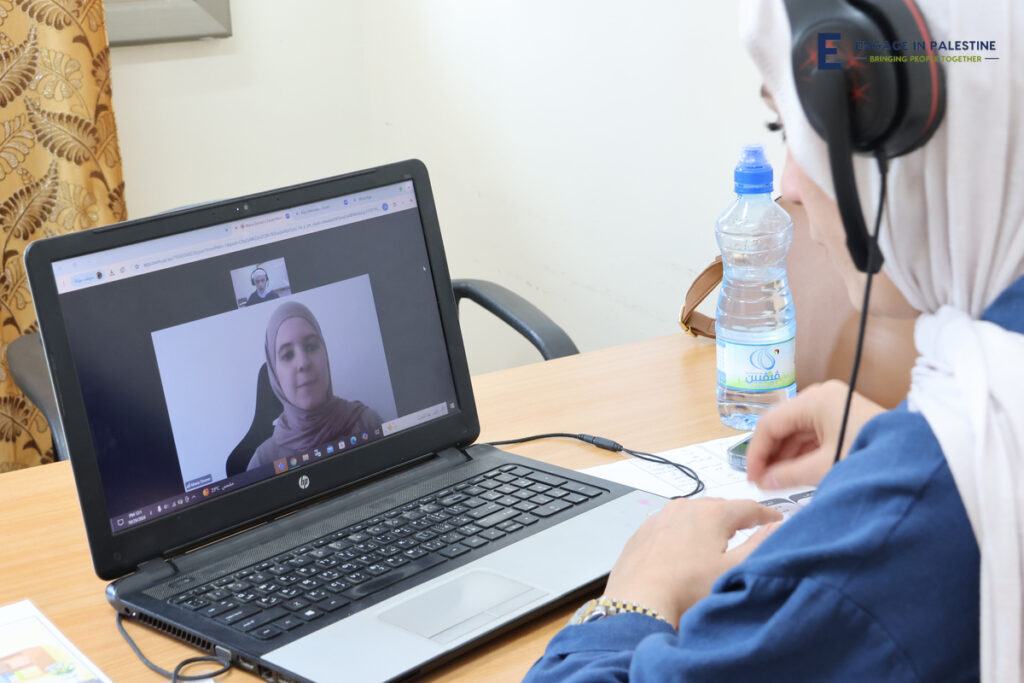
Which Course is for Me?
If you have difficulty deciding which course to enroll in, we offer a free placement test to evaluate your Arabic language skills in four crucial areas: speaking, reading, writing, and listening. Indeed, we are always happy to consult you if you have any questions regarding course levels or intensity. Our contact information, along with our Facebook page and other social media platforms, is at the bottom of this page.
Who Can Participate?
Engage in the West Bank does not discriminate based on nationality, ethnicity, religion, gender, sexual orientation, or any other discernable factor. We have a long history of welcoming people from around the globe from all walks of life, backgrounds, and identities. All are welcome, and we hope to have you!
Previous participants of Engage in the West Bank have hailed from the following countries: Australia, Austria, Belgium, Brazil, Bulgaria, Canada, China, Croatia, Cyprus, the Czech Republic, Denmark, Estonia, Finland, France, Germany, Greece, Hungary, Ireland, Italy, Japan, Latvia, Lithuania, Luxembourg, Malta, Mexico, the Netherlands, New Zealand, Norway, Poland, Portugal, Romania, Singapore, Slovakia, Slovenia, South Africa, South Korea, Sweden, Switzerland, the United Kingdom, and the United States!
What is the Language of the Study Arabic Online Program?
All of our Arabic online programs are mainly for English speakers, however for the sake of immersion, the higher the Arabic course level the less English will be present in the classroom.
Are There Any Criteria for Participants?
Altogether, there are only three requirements for partaking in our online Arabic program:
Participant Requirements:
- Colloquial fluency in English or Arabic
- Aged 16-75 (unless granted special permission by the center’s director)
- A positive attitude and eagerness to learn
Qualified Teachers
We pride ourselves on our experienced faculty and staff, who are native Palestinian Arabic speakers and have degrees and qualifications in related fields such as Teaching Arabic to Non-native Speakers, Teaching Arabic as a Second Language, Arabic cultural studies, and Arabic Literary Studies.
A Unique Experience
Although the center hosts volunteers and students from all over the world, many people are unaware of Palestine’s diversity, with only a crude understanding of a culture thousands of years old. By enrolling in this program, you will participate in a unique experience that will change your perspectives and dispel any preconceived notions about Palestine and the wider Arabic-speaking world.
Overview of the Study Arabic Online Program
| Online Arabic Courses | Super-Intensive Program | Intensive Program | Non-Intensive Program |
| Arabic Program Duration | 10-500 hours | 10-500 hours | 10-500 hours |
| Arabic Lesson duration | 45 Minutes | 45 Minutes | 45 Minutes |
| Sessions Per Week | 10 | 5 | 1-2 |
| Hours Per Week | 15 | 7.5 | 1.5-3 |
| Lesson Style | One-on-one | One-on-one | One-on-one |
| Arabic Class Time | Flexible based on time zones and student-teacher preference | Flexible based on time zones and student-teacher preference | Flexible based on time zones and student-teacher preference |
| Online Arabic Program Levels | Beginner Elementary 1 Elementary 2 Intermediate 1 Intermediate 2 Advanced | Beginner Elementary 1 Elementary 2 Intermediate 1 Intermediate 2 Advanced | Beginner Elementary 1 Elementary 2 Intermediate 1 Intermediate 2 Advanced |
| Online Arabic Varieties Offered | Modern Standard Arabic (MSA) Classical Arabic Colloquial Palestinian Arabic Colloquial Levantine Arabic Combination of varieties: MSA, Classical, Levantine, Palestinian | Modern Standard Arabic (MSA) Classical Arabic Colloquial Palestinian Arabic Colloquial Levantine Arabic Combination of varieties: MSA, Classical, Levantine, Palestinian | Modern Standard Arabic (MSA) Classical Arabic Colloquial Palestinian Arabic Colloquial Levantine Arabic Combination of varieties: MSA, Classical, Levantine, Palestinian |
| Online Platform Options | Facebook Skype Zoom | Facebook Skype Zoom | Facebook Skype Zoom |
| Application Deadline | No Deadline | No Deadline | No Deadline |
| Start/End Dates | Flexible | Flexible | Flexible |
| Program Costs | 10 Sessions=185€ 20 Sessions=370€ 30 Sessions=550€ 50 Sessions=900€ Confirm the Prices Here | 10 Sessions=185€ 20 Sessions=370€ 30 Sessions=550€ 50 Sessions=900€ Confirm the Prices Here | 10 Sessions=185€ 20 Sessions=370€ 30 Sessions=550€ 50 Sessions=900€ Confirm the Prices Here |
| Registration Fee | 30€ | 30€ | 30€ |
| University Credit | Available | Available | Available |
- Lesson = 45 minutes
- Registration fee: 30€ paid once at registration
- Study materials booklet and books: Free
- Placement Test: Free
- Certificate of completion
Program Reviews
Engage in Palestine has been honored with several prestigious Community Awards and recognized as the Best Language School and Top Volunteer and Internship Program Provider for 2019, 2021, 2022, 2023, and 2024. For more details, please visit our profiles on GoOverseas.com and GoAbroad.com.
- +850 reviews (96%) on gooverseas.com
- +175 reviews (96%) on goabroad.com
- Internship in Palestine participants’ video testimonials
Summary of the Study Arabic Online Program
Overall, our Study Arabic Online Program is an excellent choice for anyone who wants to learn Arabic from the comfort of their home before venturing into the Arabic-speaking world. It is also an excellent opportunity for those with wider interests, such as political science and international relations, to comprehend their field better while balancing busy schedules.
Although the Study Arabic Online course is especially ideal for university students to gain academic credit towards their degrees and for recent graduates to maintain their Arabic language proficiency, our online program is also suitable for those who find travel logistically or financially challenging.
Whatever the reason, our online Arabic lessons are the perfect way for enthusiastic language learners to immerse themselves in Arab culture. If this sounds like the program for you, contact us to begin your linguistic journey!
How to Apply for the Study Arabic Online Program
If you want to participate in our Arabic Online Program, please email us at Info@ecpalestine.org. We should respond to your initial inquiry within 1-2 business days.
In the subject line of your email, write “Study Arabic Online Program.” We will reply with an application form attached. Please complete this and return it to us to begin onboarding.
Have we piqued your interest? Would you like to participate in the Study Arabic Online Program? Then write to us right away!
Find Us Online
Whatsapp:+972 599 479 880
Instagram: https://www.instagram.com/excellence.center
Facebook page: https://www.facebook.com/ExcellenceCenter
Facebook account: https://www.facebook.com/RafatECHebron
Watch us on Youtube: https://www.youtube.com/channel/UCsQSLdFZWZcBm6Uj0XMYuKg
Visit and Explore Palestine: https://www.facebook.com/ExplorePalestine
